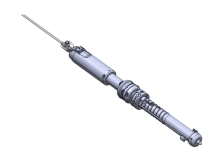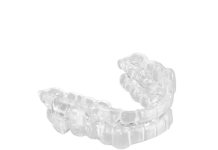Radiotherapy technology developer Leo Cancer Care has raised $40m to further the commercial reach of its upright radiotherapy system.
The funding round was led by Catalio Capital Management and included participation from unspecified new and existing investors.
Leo’s device, named Marie, is a positioning system and CT scanner for proton therapy. Placing patients in an upright position, the rationale behind the system is to replace gantry rotation, which is found in traditional radiotherapy systems, with patient rotation.
Related: Sencilia secures funding to make infusion therapy safer and more precise
According to Leo, the system’s upright approach to scanning patients will reduce the cost and complexity of proton therapy, thereby making such treatments more patient-friendly and globally accessible.
Marie gained 510(k) clearance from the US Food and Drug Administration (FDA) in July 2025.
The Marie system has so far been installed in several US healthcare settings, including UW Health (University of Wisconsin), with Leo anticipating the first patient treatments to take place later this year.
In May, Leo and France-based cancer centre Léon Bérard received a European grant towards validating and optimising Marie’s use in clinical settings.
Commenting on the financing round, Leo’s co-founder and CEO Stephen Towe said the support of new and returning investors highlighted the “growing recognition” of the potential of radiotherapy in improving patient experiences and expanding access to advanced treatments worldwide.
Elaborating on its support for Leo, Catalio Capital Management’s senior analyst Dr Nicholas von Guionneau claimed the system will lead to a pipeline of pioneering therapeutic and diagnostic products, as well as hold the potential to improve patient care throughout radiotherapy procedures.
During 2024’s European Society of Radiology and Oncology (ESRO) Congress, Dr Ye Zhang from Switzerland’s Paul Scherrer research institute highlighted that the use of upright radiotherapy would remove the need for gantries, reducing the space needed for a particle therapy system by nearly 80%, thereby decreasing treatment facility costs and heightening the potential for radiotherapy’s adoption across global healthcare settings.
A paper published in the Lancet Oncology also highlighted that radiotherapy performed with upright systems could draw down on the cost of the procedure and help to increase patient access.




